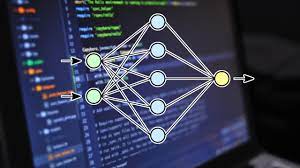The Rise of AI Programming: Transforming the Digital Landscape
Artificial Intelligence (AI) programming has emerged as one of the most transformative technologies of the 21st century. From automating mundane tasks to revolutionizing industries, AI is reshaping how we interact with technology and each other.
What is AI Programming?
AI programming involves creating algorithms that enable computers to perform tasks that typically require human intelligence. These tasks include learning, reasoning, problem-solving, perception, and language understanding. By leveraging machine learning, neural networks, and deep learning techniques, programmers can create systems that improve over time without explicit instructions.
Key Components of AI Programming
- Machine Learning: A subset of AI that focuses on building systems that can learn from data and improve their performance over time.
- Neural Networks: Modeled after the human brain, these networks consist of layers of interconnected nodes that process data in complex ways.
- Natural Language Processing (NLP): Enables computers to understand and interpret human language, facilitating communication between humans and machines.
- Computer Vision: Allows machines to interpret and make decisions based on visual data from the world around them.
The Impact of AI Programming
The influence of AI programming spans various sectors:
- Healthcare: AI assists in diagnosing diseases more accurately and developing personalized treatment plans.
- Finance: Algorithms analyze market trends for better investment strategies and fraud detection.
- Agriculture: Smart farming solutions optimize crop yields through predictive analytics.
- Transportation: Autonomous vehicles promise safer roads by reducing human error.
The Challenges Ahead
Despite its potential, AI programming faces several challenges. Ethical concerns about privacy, bias in algorithms, and job displacement are at the forefront. Ensuring transparency in AI decision-making processes is crucial for gaining public trust. Moreover, addressing these issues requires collaboration between technologists, policymakers, and ethicists to create a balanced approach to AI development.
The Future of AI Programming
The future holds immense possibilities for AI programming. As technology advances, we can expect more sophisticated applications across all aspects of life. With continued innovation and ethical considerations at the core of development efforts, AI has the potential to enhance human capabilities while addressing some of society’s most pressing challenges.
The journey towards fully realizing the benefits of artificial intelligence is ongoing. As programmers continue to push boundaries, they pave the way for a future where intelligent machines work alongside humans for a better world.
7 Common Questions About AI Programming Answered
- What does an AI programmer do?
- Is Python an AI program?
- What is AI programming?
- What language is used in AI programming?
- Can I learn AI without coding?
- Is coding an AI hard?
- What coding is required for AI?
What does an AI programmer do?
An AI programmer is responsible for designing, developing, and implementing algorithms and software that enable machines to perform tasks typically requiring human intelligence. This involves creating models using techniques like machine learning, neural networks, and natural language processing to allow computers to learn from data, recognize patterns, and make decisions. AI programmers work on projects such as developing chatbots, recommendation systems, autonomous vehicles, and more. They collaborate with data scientists to preprocess data and fine-tune models for optimal performance. Additionally, they ensure that AI systems are scalable and efficient while addressing ethical considerations such as bias and transparency in decision-making processes.
Is Python an AI program?
Python is not an AI program itself, but it is a highly popular programming language used extensively in the field of artificial intelligence. Known for its simplicity and readability, Python provides a robust ecosystem of libraries and frameworks that facilitate AI development. Libraries such as TensorFlow, PyTorch, and scikit-learn offer powerful tools for machine learning, deep learning, and data analysis. Its versatility and ease of use make Python an ideal choice for both beginners and experienced developers working on AI projects. As a result, Python has become one of the go-to languages for implementing AI algorithms and building intelligent systems.
What is AI programming?
AI programming refers to the process of designing and developing algorithms that enable computers to perform tasks typically requiring human intelligence. These tasks can include learning from data, recognizing patterns, understanding natural language, and making decisions. By using techniques such as machine learning, neural networks, and deep learning, AI programmers create systems that can improve their performance over time without needing explicit instructions. The goal of AI programming is to build intelligent machines that can adapt to new information and solve complex problems across various domains, from healthcare and finance to transportation and entertainment.
What language is used in AI programming?
In AI programming, several programming languages are commonly used, each offering unique features suited to different aspects of artificial intelligence development. Python is the most popular language due to its simplicity and extensive libraries like TensorFlow, PyTorch, and scikit-learn, which facilitate machine learning and deep learning tasks. R is favored for statistical analysis and data visualization, making it useful in data-driven AI projects. Java is often used for large-scale applications due to its portability and performance. Additionally, languages like C++ are employed when execution speed is critical, while Lisp and Prolog are known for their utility in specific AI research areas such as natural language processing and symbolic reasoning. The choice of language largely depends on the project’s requirements and the developer’s familiarity with the language’s ecosystem.
Can I learn AI without coding?
Learning AI without coding is possible to some extent, especially for those interested in understanding the concepts and applications of artificial intelligence rather than developing AI systems themselves. Many online courses and resources offer introductions to AI principles, focusing on the theoretical aspects, ethical considerations, and real-world applications. These courses often use visual tools and user-friendly interfaces that allow learners to experiment with AI models without writing code. However, for a deeper understanding and the ability to create or modify AI algorithms, learning programming languages such as Python is essential. Coding knowledge empowers individuals to engage more comprehensively with AI technologies, enabling them to build custom solutions and contribute to advancements in the field.
Is coding an AI hard?
Coding an AI can be challenging, but it largely depends on the complexity of the project and the programmer’s level of expertise. For beginners, the steep learning curve may seem daunting as it involves understanding algorithms, data structures, and programming languages such as Python or R. Additionally, knowledge of machine learning frameworks like TensorFlow or PyTorch is often necessary. However, with the abundance of online resources, tutorials, and community support available today, aspiring AI developers can gradually build their skills. While creating advanced AI systems requires a deep understanding of both theoretical concepts and practical implementation, starting with simpler projects can make the process more manageable and rewarding over time.
What coding is required for AI?
To develop AI applications, a variety of programming languages and coding skills are required, each suited to different aspects of AI development. Python is the most popular language for AI due to its simplicity and extensive libraries like TensorFlow, Keras, and PyTorch that facilitate machine learning and deep learning projects. R is favored for statistical analysis and data visualization, while languages like Java and C++ are used for building high-performance applications where speed is crucial. Additionally, understanding algorithms, data structures, and mathematical concepts such as linear algebra and probability is essential for creating effective AI models. Familiarity with these languages and concepts enables developers to design intelligent systems capable of learning from data and making informed decisions.



